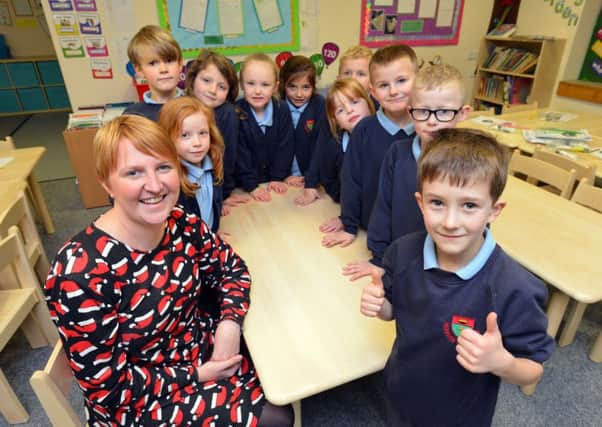Schools in South Tyneside celebrate beating the national average in Sats results


The Department of Education has released the Key Stage 2 tables and South Tyneside has scored significantly above the national average.
The number of Year 6 children passing the combined expected standard in reading, writing and maths in the borough was 57%, which is 4% higher than the national average.
Advertisement
Hide AdAdvertisement
Hide AdIn reading, 67% of children gained the expected standard, compared to 66% nationally, in writing it was 81% compared to 74% nationally, and in maths it was 75%, which was 5% higher than the national average.
Coun Joan Atkinson, lead member for children, young people and families at South Tyneside Council, said: “These results are a tribute to the efforts of Year 6 pupils and their parents and carers and are testament to the outstanding work being done in our junior and primary schools.
“To be significantly above the national average in reading, writing and maths is a great achievement and I am proud to be the cabinet member for children, young people and families in an area with such strong and successful schools.
“While we are delighted with this great news, we are not complacent and will continue to work in partnership with our schools to consolidate this excellent record.”
Advertisement
Hide AdAdvertisement
Hide AdAt St Oswald’s CofE Primary School in Hebburn there were huge celebrations when the results put them at the top in the borough.
Headteacher at the St Oswald’s Road school, Helen Smith, said she was thrilled by the achievement.
The figures showed that 84% of the 11-year-olds had gained the combined expected level in reading, writing and maths, 91% reached the standard in reading, 84% in writing and 94% in maths.
Mrs Smith said: “We knew we had done well, but we didn’t know we had done quite so well. I am absolutely over the moon. I am so lucky to have such amazing and enthusiastic staff.
Advertisement
Hide AdAdvertisement
Hide Ad“People think it is just the Year 6 teachers, but it is the success of all the teachers who have contributed to the education of the children right the way through the school.”
Mrs Smith said the children had worked incredibly hard throughout their time at the school and were a great year group.
There have been a number of changes to the way in which the exams are carried out and scored.
Mrs Smith said staff had done a huge amount of preparation and studied the guidelines in the greatest of detail to ensure they were teaching the children what was needed to do well.
Advertisement
Hide AdAdvertisement
Hide AdSchool Standards Minister Nick Gibb said: “This year’s SATs are the first that test the new primary school curriculum in English and maths that we introduced in 2014.
“Many schools have responded well to this more rigorous curriculum, supporting their pupils to be leaving primary school better prepared for the demands of secondary school.
“This year we have given schools progress scores, which will be reflected in the tables for the first time. The greater emphasis on pupil progress in 2016 ensures fairness across all schools, including those that have more challenging intakes.
“This is the first year we have assessed pupils under the new system. They are therefore not comparable to test results from previous years which were under an entirely different system of assessment.”
Advertisement
Hide AdAdvertisement
Hide AdBut, Russell Hobby, general secretary of the National Association of Head Teachers (NAHT), said: “This data is not worth the paper it is written on.
“This year, we saw the SATs system descend into chaos and confusion. Delayed and obscure guidance, papers leaked online, mistakes in test papers and inconsistent moderation made this year unmanageable for school leaders, teachers, parents and pupils.
“The data gathered in primary assessment during 2016 is misleading. We warned the Government that publishing this data in league tables could lead the public and parents to make poor judgments about a school’s performance, but it has still chosen to do so.”
Julie McCulloch, primary specialist at the Association of School and College Leaders union, said: “The tests are based on a new, much harder curriculum, which the children had followed for only two years, and the expected standard has been significantly raised. In addition, the Government’s introduction of these tests has been chaotic.
“Against this background, schools, teachers and pupils have performed miracles and deserve great credit.”